December 2021 marked the centenary of the directive which flung the women’s game into the wilderness for five decades. Less than a year before this myopic edict, one of the most significant football matches in Goodison Park’s history took place – but it did not involve an Everton team.
During the First World War, football matches played between women’s factory teams boosted wartime morale and raised funds for deserving causes. Goodison Park staged a charity match on 1 April 1918, contested by Aintree Munitions Ladies and North Haymarket Ladies Football Club. However, a fixture on a far grander scale took place at the same venue on the morning of 26 December 1920.
The clement weather drew a large crowd, estimated to be in excess of 40,000, on Boxing Day morning (Liverpool FC had a home fixture later that day). The big draw was a match between St Helen’s Ladies and their celebrated rivals, Dick, Kerr Ladies of Preston. People swamped the surrounding streets, so the two teams needed a police escort to get safely into the stadium’s players’ entrance. Dick, Kerr, were simply too good for their Lancastrian rivals and struck four times without reply. Team captain Alice Kell bagged a hat-trick and was then presented with a trophy by the Lord Mayor of Liverpool. Sadly, no photos of the great occasion survive. Gate receipts of £3,100 were donated to discharged soldiers’ and sailors’ funds in Liverpool.
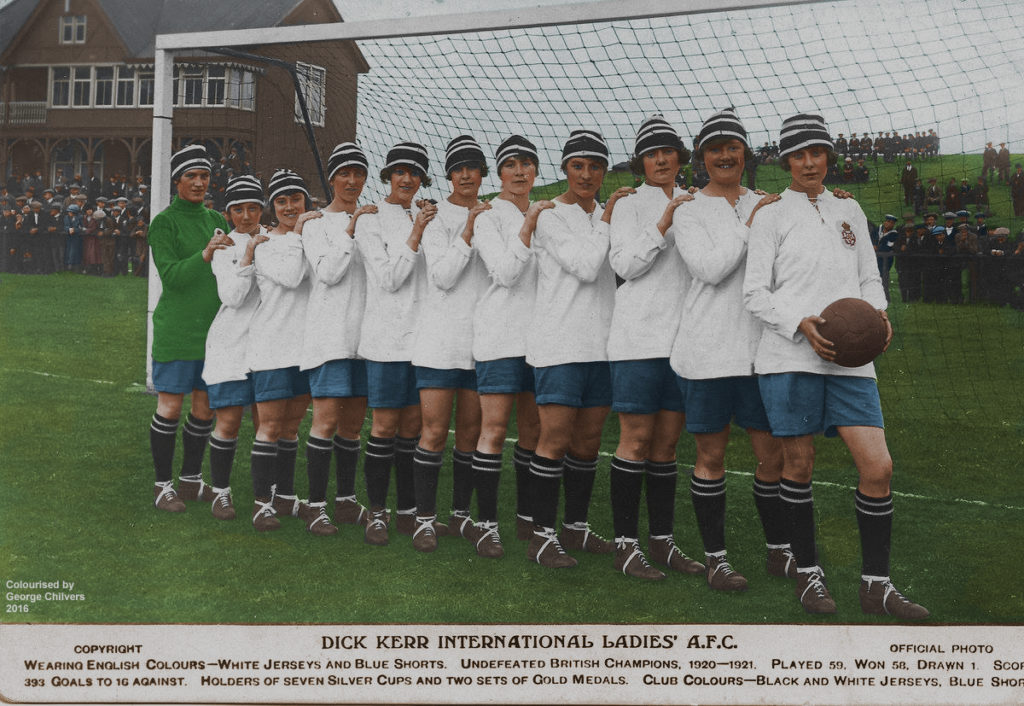
Concerned about the potential threat to the men’s game, mutterings that not enough of the gate receipts were reaching the designated good causes, and Dick, Kerr Ladies’ overtly political support for striking coal miners, the Football Association swung into action. Women’s matches at members’ grounds were banned and, soon afterwards, qualified match officials were barred from overseeing females’ fixtures.
The FA made this statement on the 5 December:
Complaints having been made as to football being played by women, the Council feels impelled to express their strong opinion that the game of football is quite unsuitable for females and ought not to be encouraged.
Complaints have also been made as to the conditions under which some of these matches have been arranged and played, and the appropriation of receipts to other than charitable objects.
The Council are further of the opinion that an excessive proportion of the receipts are absorbed in expenses and an inadequate percentage devoted to charitable objects.
For these reasons the Council request clubs belonging to the association to refuse the use of their grounds for such matches.
However, women’s football refused to die. In August 1935, Preston Ladies FC (formerly Dick, Kerr Ladies) played a French team at the Breck Park Greyhound Stadium, Tuebrook, in front of 5,000 spectators. Dixie Dean was present to meet the team captains and carry out the ceremonial kick-off. Everton’s Assistant Trainer, Andy Tucker, and inside-forward Alex Stevenson ran the lines.
Preston Ladies FC folded in 1965, six years before the draconian restrictions on women’s football were rescinded. Everton Ladies came into being in 1995, when Leasowe Pacific came under the club’s umbrella – a positive legacy left by then-chairman Peter Johnson. Led by Billy Jackson, the team won the Women’s Super League in 1998 and subsequently enjoyed great success under the stewardship of Keith Marley and his wife (and former team captain) Mo Marley.
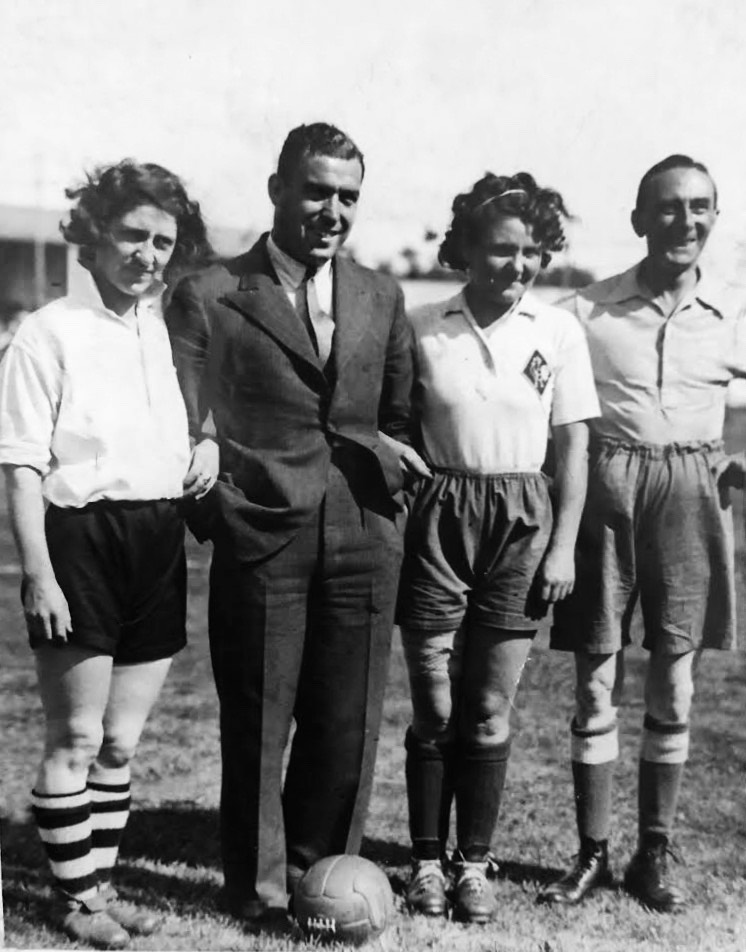
Following in the footsteps of Dick, Kerr and St Helens Ladies, Everton Women (as they are now known) have played on numerous occasions at Goodison Park. The team is now fully integrated into the Everton structure and has a new home at Walton Hall Park – a ten-minute walk from Gwladys Street. The great Lily Parr, who played for Dick, Kerr Ladies in that famous festive match in 1920, has been joined in the English Football Hall of Fame by ex-Toffees Rachel Brown-Finnis and Rachel Unitt.
Photo credits:
Dick Kerr ladies image colourised by George Chilvers
1935 Image of Dixie Dean with Everton trainer Andy Tucker and English and French women footballers is used care of Rob Tucker.

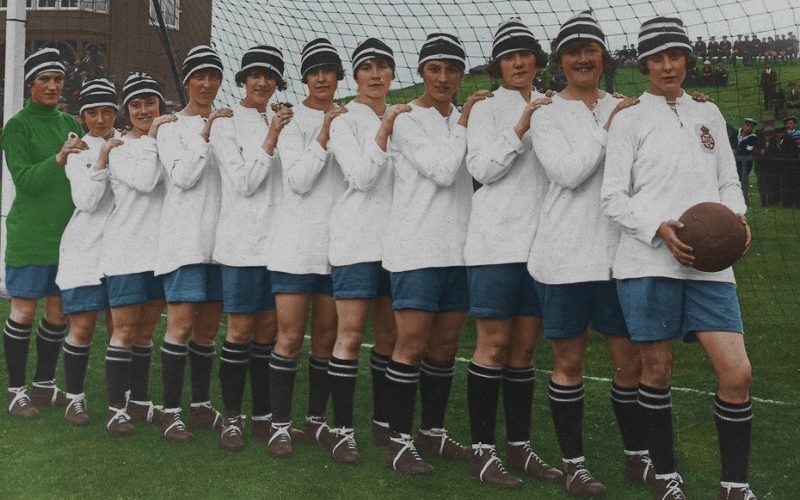

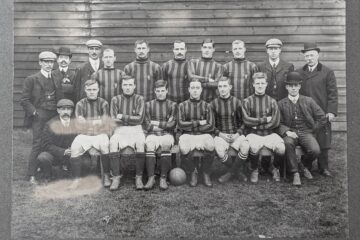
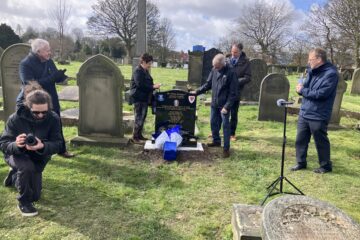
Love this